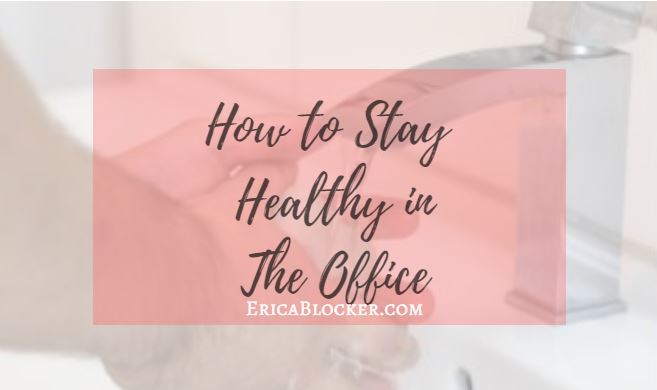Never before has there been more focus on healthcare in the workplace. The healthcare industry is booming as people do their best to take care of themselves. That’s because employers and employees have finally clocked on that health equals productivity. An unhealthy worker is likely to miss more days of work or slack off while at work because they don’t have the energy to complete tasks well. So, what can you do to boost your health in the workplace?

Keep Your Hands Clean
It goes without saying that germs and bacteria can spread like wildfire. One of the best ways to prevent the spread of germs is to always keep your hands clean. Wash your hands before eating your lunch and wash your hands after using the bathroom. It can also help to keep hand sanitizer at your desk so you can quickly sanitize your hands should you catch yourself sneezing or coughing into your palms.
Look After Your Work space
A dusty and unorganized workspace is a breeding ground for bacteria. It’s important to tidy up paperwork and keep a clear space so it can be easily cleaned. An organized space also betters your business by giving the right impression to clients. Keep some anti-bacterial wipes in your desk drawer and give the surface of your desk a wipe once a day to ensure you can’t pick up anything unwanted from your work space.
Stay Hydrated
It’s easy to become so consumed with your work that you forget about looking after yourself. Many people complain of headaches at the end of the day after having to stare at a computer screen for hours. However, a lot of the time, those headaches are entirely down to dehydration. You may be popping into the break room to make yourself a cup of coffee every now and again, but that’s nowhere near as good as having a fresh bottle of water at your desk to sip on as you work.

Get Comfy
The average office worker sits at a desk in front of a screen for seven hours a day, five days a week. That’s a lot of time sitting in the same position. It’s important to have the right set-up so your body doesn’t begin to seize. For example, it’s possible to get back ache without the best office stools. Your computer should be level with your head height so you don’t have to lean forwards or backwards to get your work done properly. Causing pain in your back or neck can mean you have to take time off from work that you hadn’t planned for and miss out on your wages.
Steer Clear of Colleagues Who Aren’t Well
It’s easier said than done sometimes, but if you notice a colleague at work who has come in with the flu, try your best to stay away. You won’t always be able to prevent the spread of germs, but keeping your distance will give you a fighting chance of not picking up the same illness. If you’re forced to work closely with an ill colleague, it wouldn’t hurt to encourage your colleague to take a sick day and recover instead of trying to soldier on.
Take Your Breaks
We’re all guilty of working through breaks at some point or another – especially when deadlines are closing in. However, that can often be the worst thing to do. A tired mind is more susceptible to making mistakes. Taking the time you need to refresh and rejuvenate – even if it’s just a walk to the coffee store – can do wonders for the work you produce and the way you feel.
Healthy Snacks
Our bodies need fuel for our brains to function properly. If you’re forcing your brain to work for seven hours on a sandwich alone, you’re probably not getting the best results. Pack a few healthy snacks and keep them at your desk so you can eat while you work. Fruit, energy bars or carrot sticks and dip can give you the boost you need to get your work done. The vitamins and nutrients in fruit and veggies will also protect your body and keep you healthy.
Manage Stress Levels
With life as fast-paced as it is today, it’s easy to feel overwhelmed at times. Keep in mind that high levels of stress will do nothing good for your health. If you’re feeling highly stressed at work, talk to your boss about lowering your work load until you feel well enough to take on more. You can also try relaxation therapies, like yoga or acupuncture, to give you some relief.








